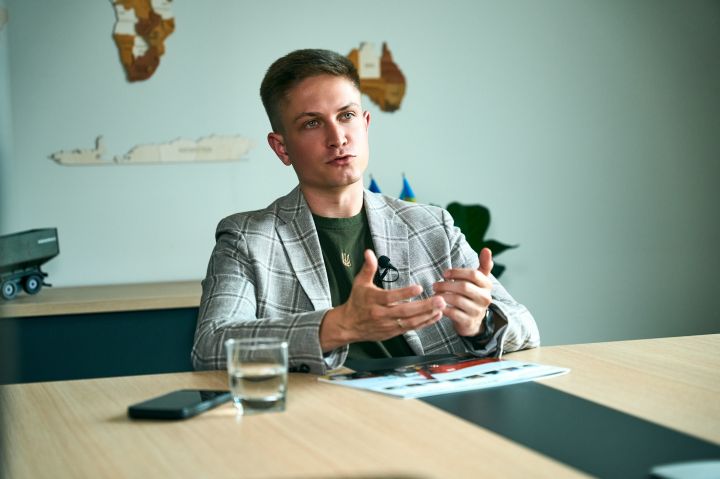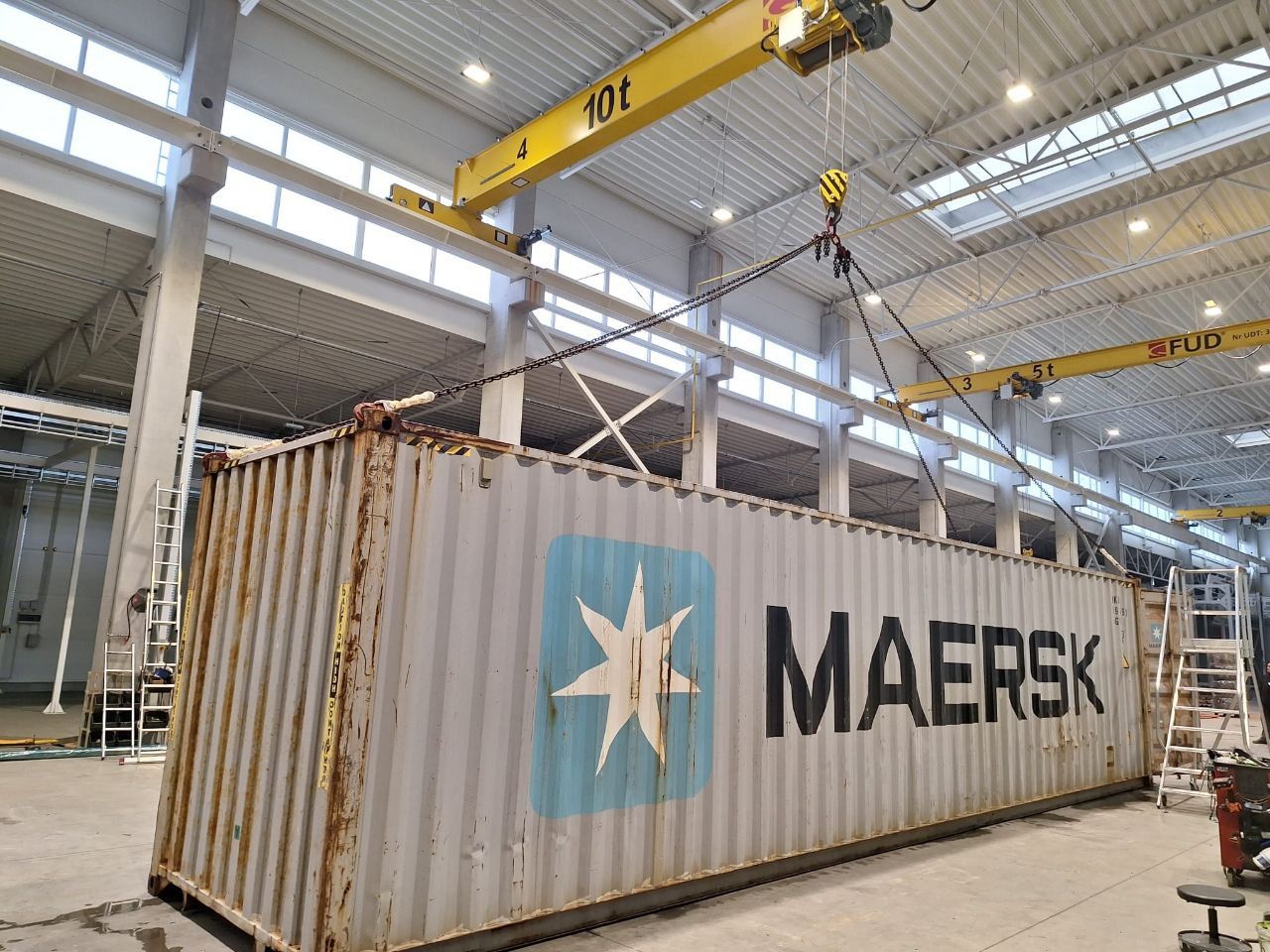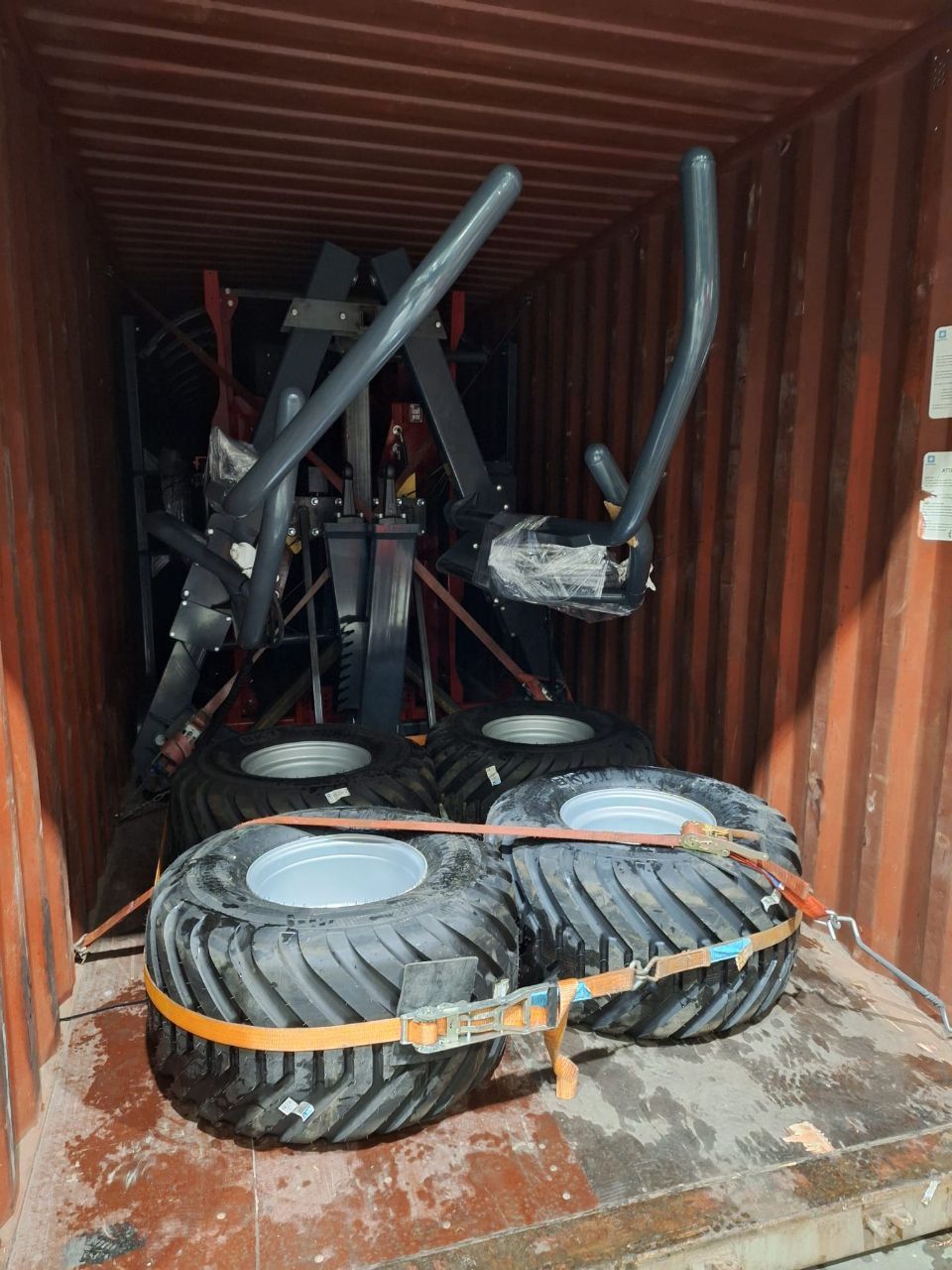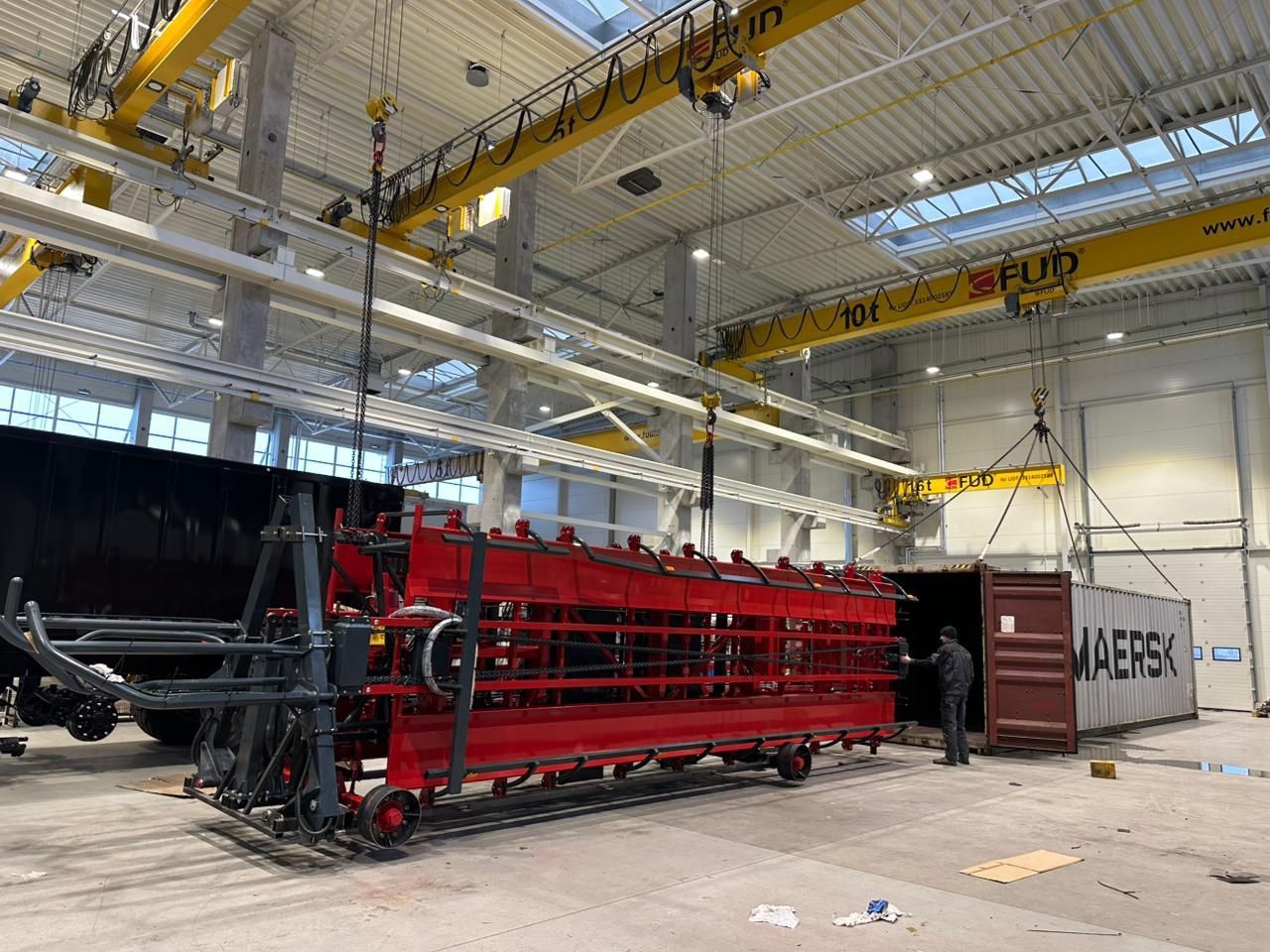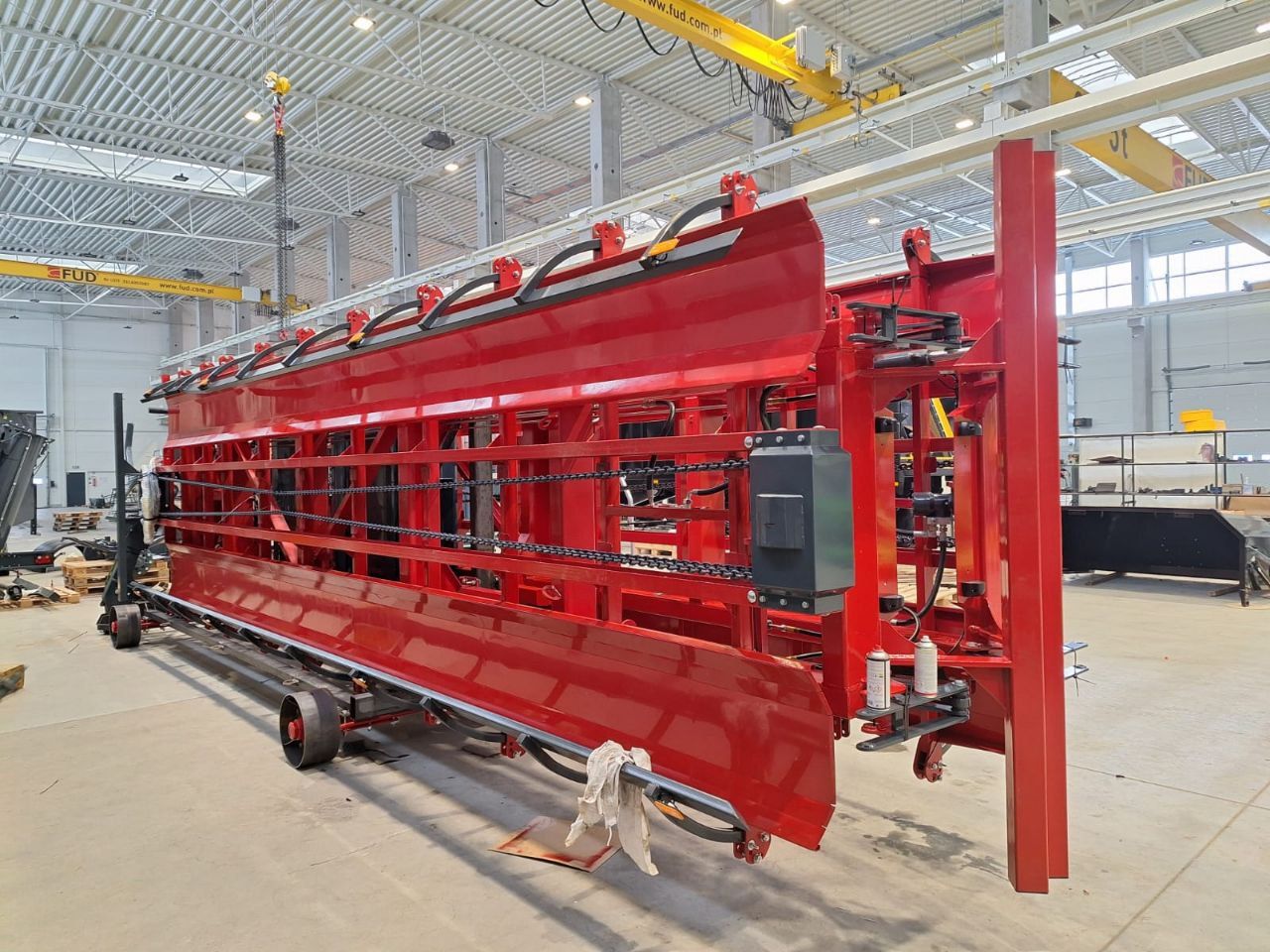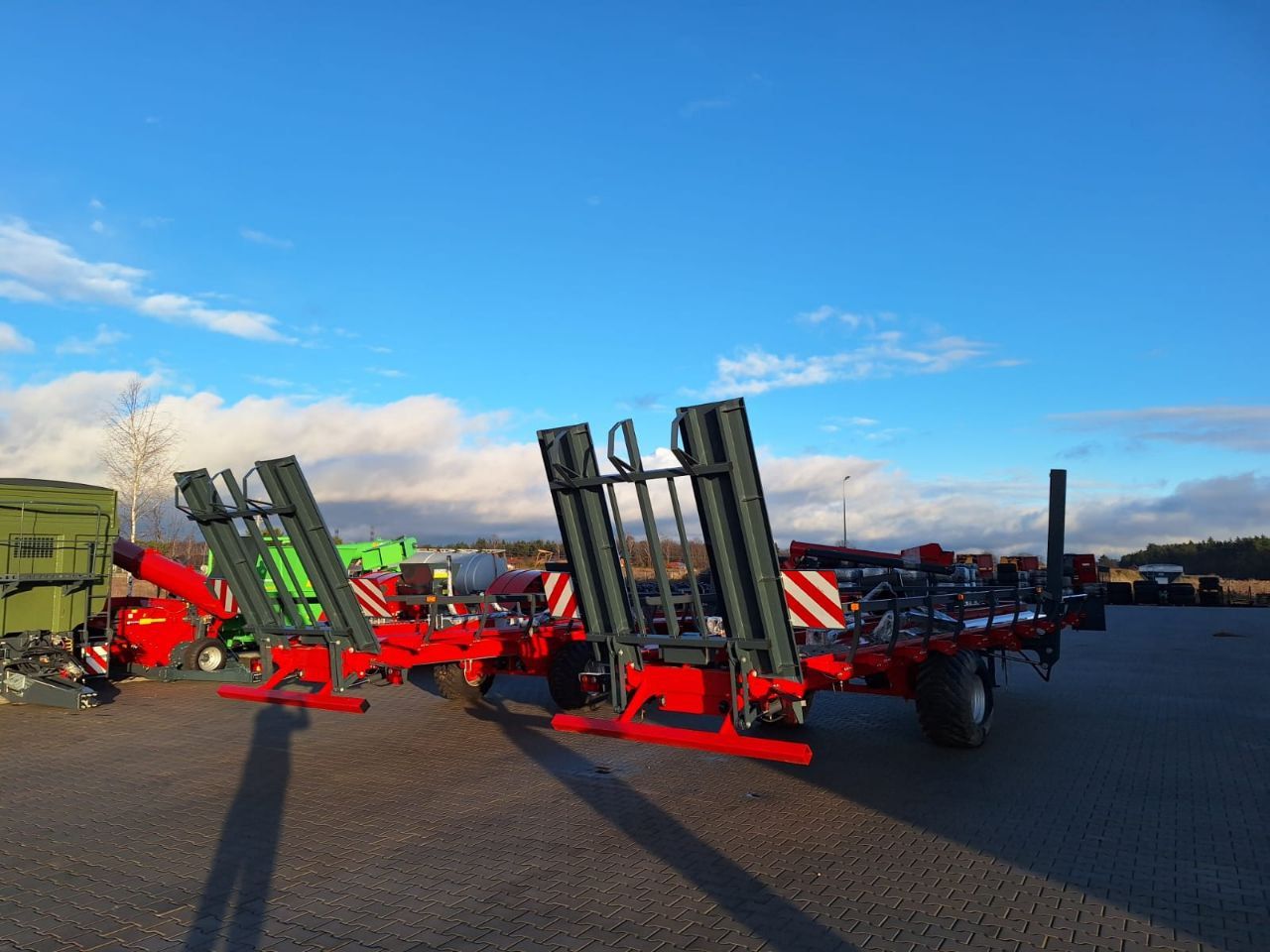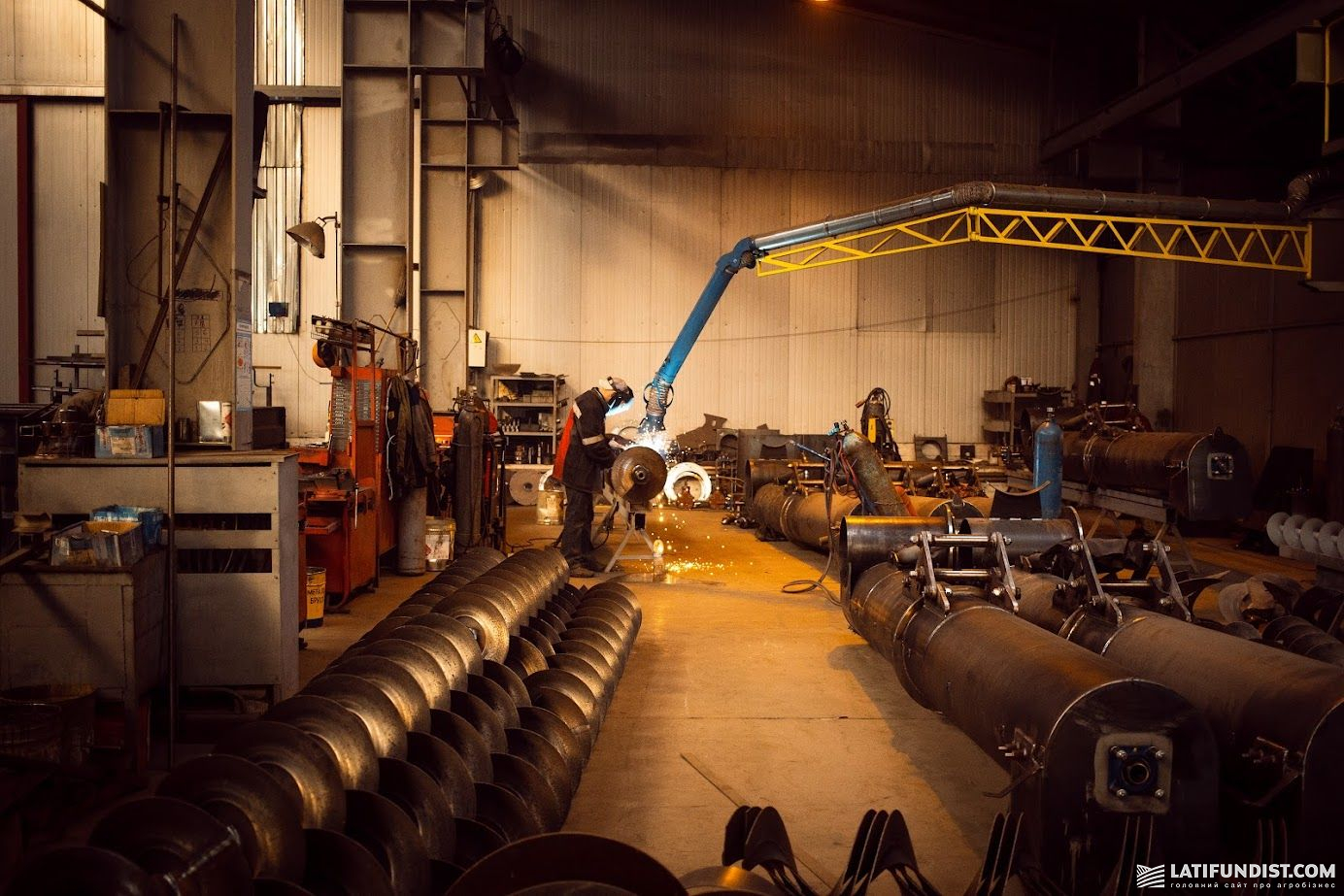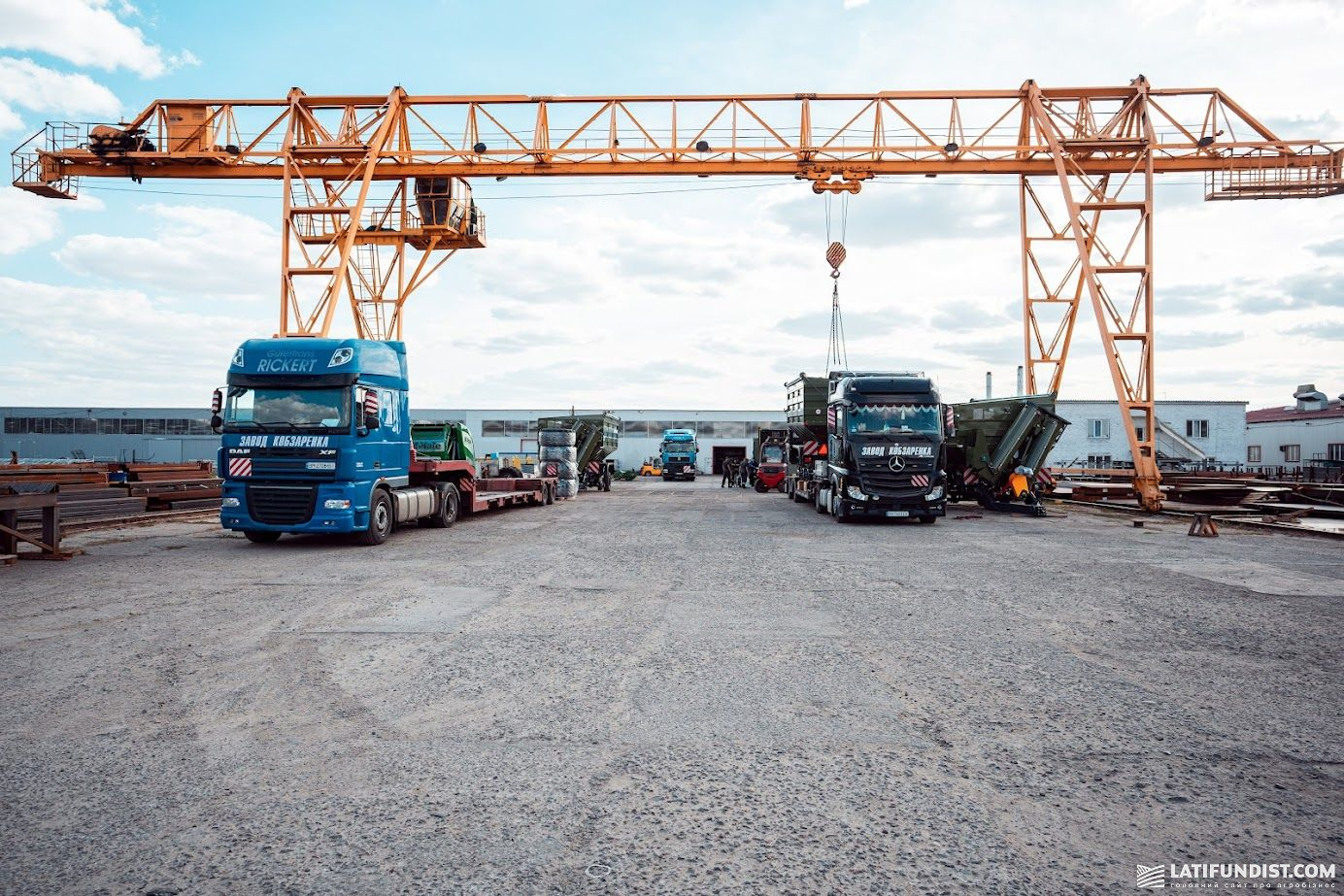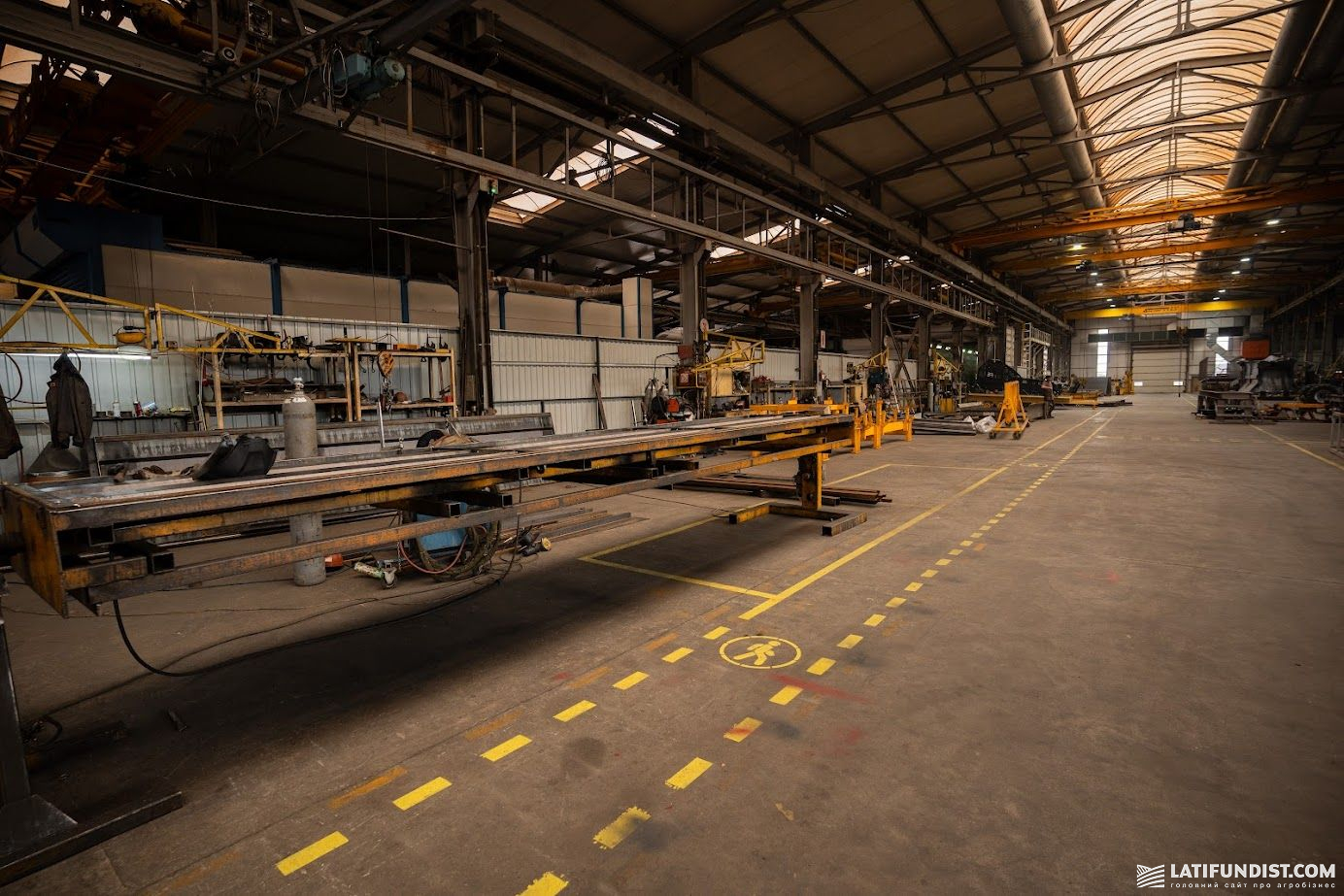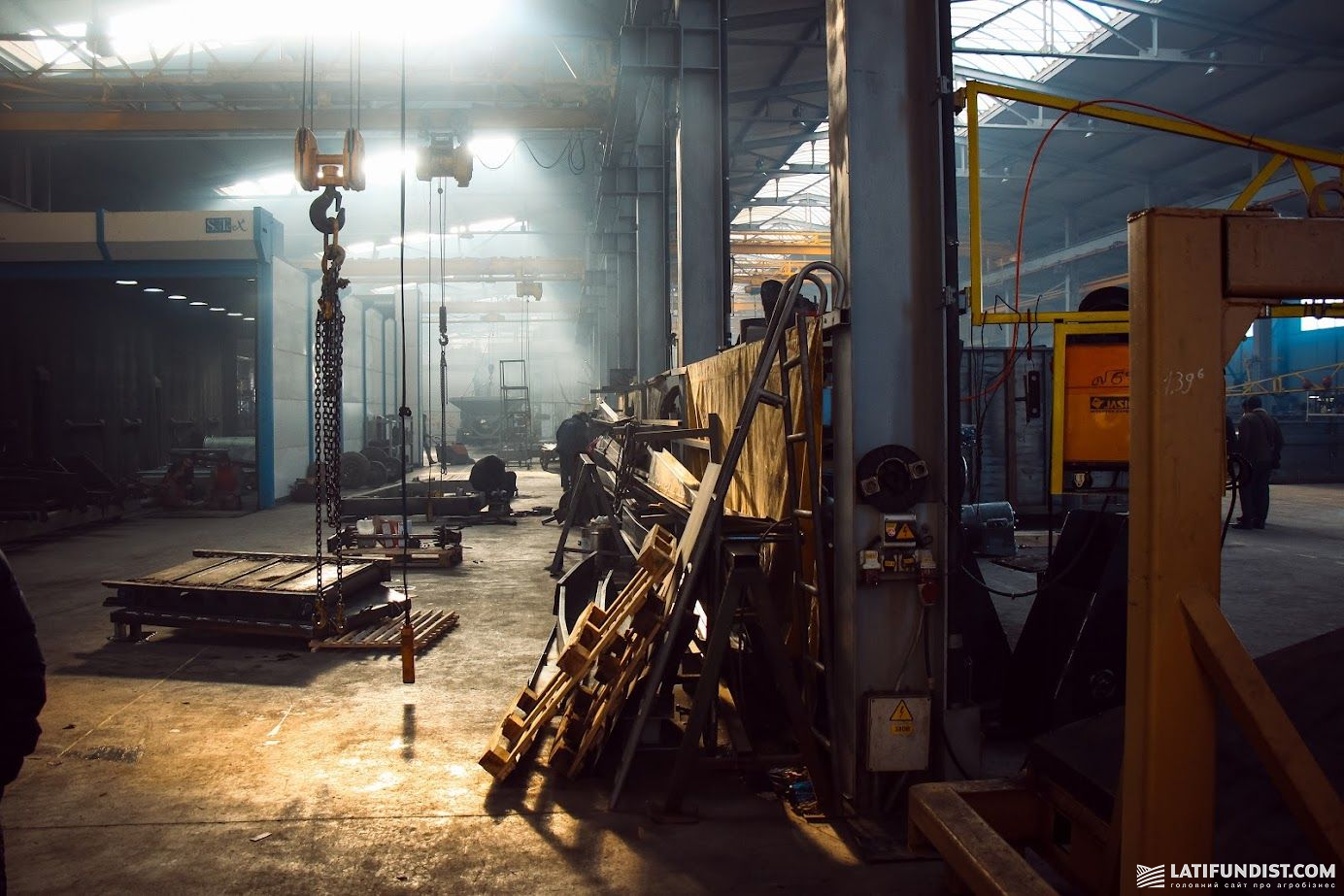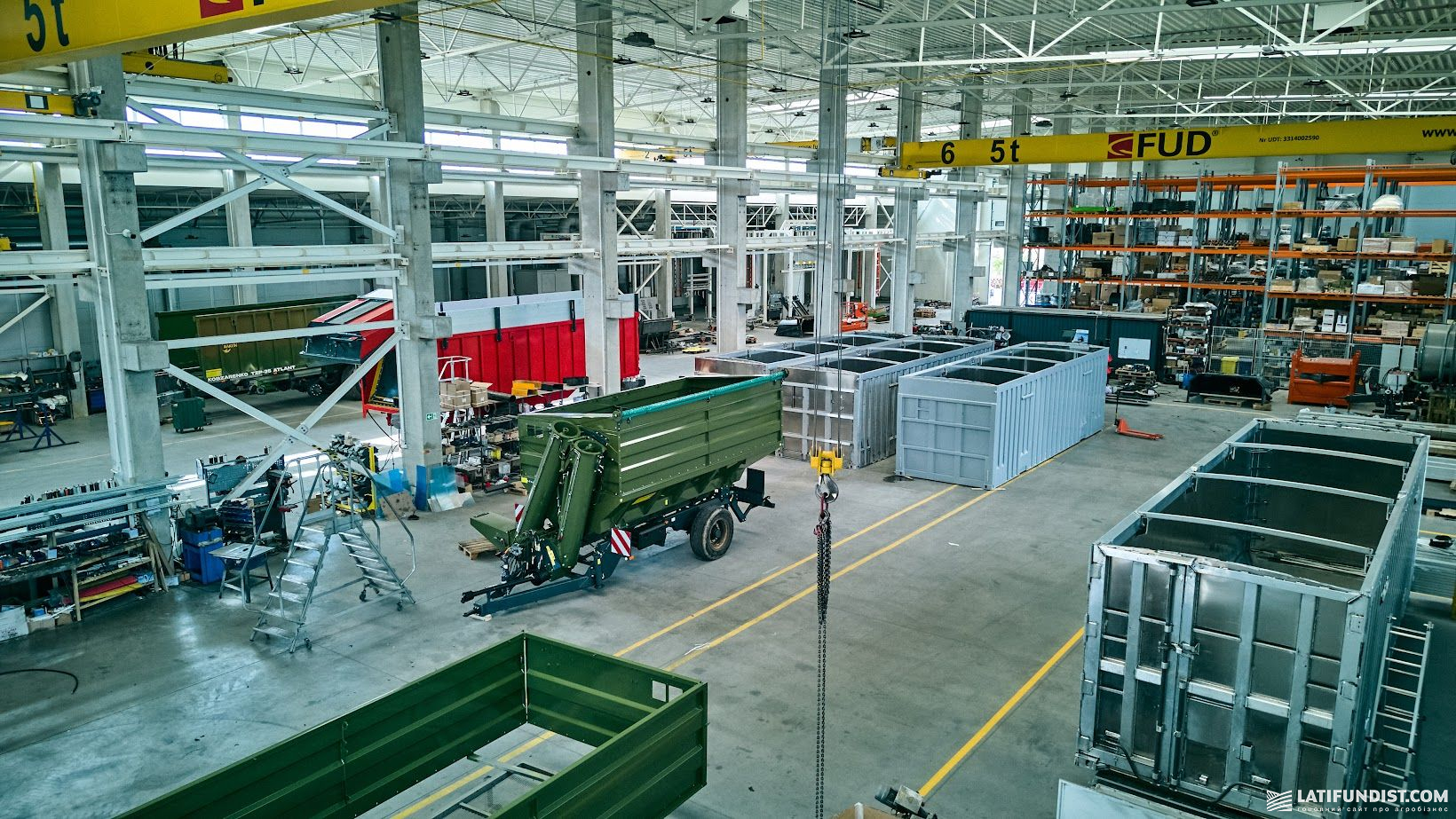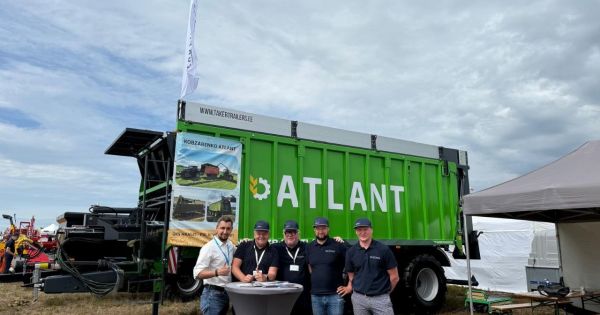Non-Stop In the Frontline Sumy Region: Dmytro Kobzarenko on Running a Plant During the War, the Team, and Competition
“When people in Europe hear that a Ukrainian company is working non-stop, they wonder: how do you manage to keep operating?” says Dmytro Kobzarenko, owner of Kobzarenko Plant. Despite its proximity to the frontline, the company is booked with orders four months ahead, actively expanding export markets, and plans to double production volumes within three years. In a conversation with Latifundist.com, Dmytro talks about management during the war, operations at production sites in Poland, and why he still hasn’t gotten used to the Polish mentality. He also discusses competition with European brands, exiting the russian market, and the reasons behind a criminal case opened in Ukraine.
Dmytro Kobzarenko: You cannot just switch off four years of war like a toggle. Of course, people are exhausted. Now the Shaheds have also been added. People spend the night in shelters and in the morning go to work. Sometimes they simply need support—not even solving the problem, but simply a conversation.
If we talk about teamwork, I would compare it to a bag of ripe apples. We spent some time sorting the apples, and now everyone is in their place. We strengthened the team with an HR director. Now there is a dedicated role responsible for the moods in the team, creating motivational programs, and implementing many interesting training programs.
As my father used to say: “You can’t do all this alone.” And indeed, a plant is, first and foremost, a collective. We devote much attention to preserving the team because people need to be valued. At the company, there is a sense of collective unity. The plant now is 780 employees, 780 families. Each person understands that his or her work affects the final result. Weekly operational meetings end with the call: “We are working for victory!” and every month a bonus is paid for the collective result.
Attitude to Ukrainian business in Poland
Latifundist.com: You are currently in Poland, where your two production sites are located. What share of total production do they account for?
Dmytro Kobzarenko: If in Ukraine our production occupies 35,000 square meters, then in Poland, only 9,000 square meters. In terms of output—in Poland we are now reaching the level of 200 units per year, while in Ukraine—1,800. Therefore, the Polish plant is quite a small enterprise. In financial terms, accordingly, the distribution is the same. The Polish plant cannot cover all export needs, but it allows clients to assess the production approach and quality standards.
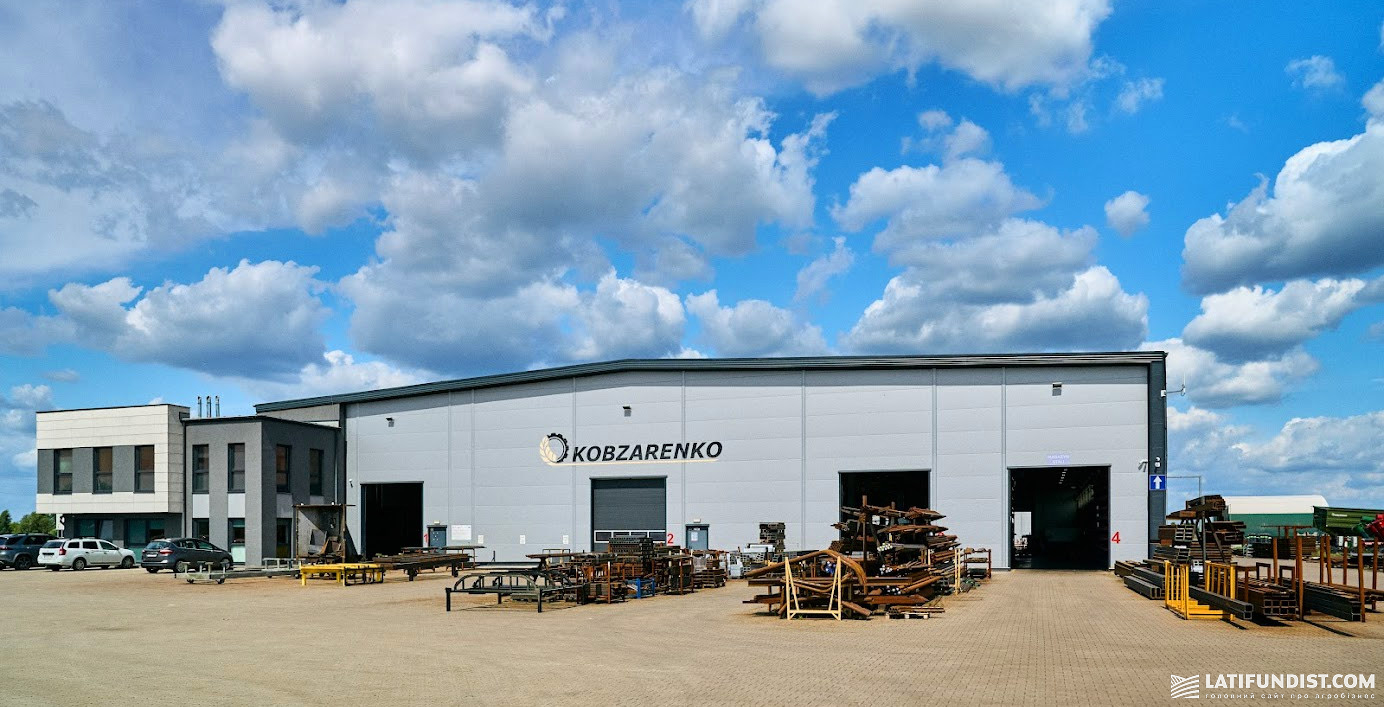
Latifundist.com: By the way, elections have recently taken place in Poland. You have been working in this market for a long time—do you feel that the attitude toward Ukrainian business has changed? Are there any signs of political tension or bias?
Dmytro Kobzarenko: If you are a responsible investor, follow the law, and maintain business relations with the local government, you are treated with respect, regardless of your citizenship or the flag at the entrance.
Latifundist.com: In your team, do you have more Ukrainians or Poles?
Dmytro Kobzarenko: More Ukrainian workers are employed in production; there are women in the preparation areas before painting. In percentage terms, it is about 80%, and 20% are local Polish workers. In the office, the specifics are different: you need to know tax requirements, occupational safety requirements, and many local specifics that Polish workers know best. Therefore, there are fewer Ukrainians in the office. In total, the Polish plant has 58 employees.
Latifundist.com: Although I recall how your late father, Anatolii Kobzarenko, used to say that when locals heard about the working conditions at the plant, they would quit their old jobs and come to you. Was that a bit exaggerated?
Dmytro Kobzarenko: Perhaps a little exaggerated. But indeed, there is high labour competition here. And more than five years have already passed, and salaries in Poland have risen. So we adapt. We work under market conditions. I cannot say there is a queue of workers standing at our door. On the contrary, right now in Poland, there is a big problem with personnel. The country is developing rapidly, probably the fastest in the entire European Union, and even in our industrial zone, new enterprises appear every year. Demand for labour is growing.
Latifundist.com: Is your Polish plant an autonomous enterprise? Or is it still part of a single production chain with the Ukrainian assets?
Dmytro Kobzarenko: It is a completely autonomous enterprise—both legally and in terms of production. It does not depend on the Ukrainian company. Here, a full closed production cycle has been established.
Was there a joint venture with russians
Latifundist.com: Before the big war, the russian market accounted for up to half of all your external supplies, which you talked about in a 2021 Forbes interview. But when the full-scale invasion began, the break with the aggressor country was inevitable. How did this happen in practice? After all, there were established sales channels, dealers, and a history of cooperation.
Dmytro Kobzarenko: Until 2022, we had long-standing business relations with a russian dealer under a dealership model. With the start of the full-scale invasion, we informed them that any cooperation with the aggressor country was immediately terminated. The dealership agreement did not provide for any penalties against us, so the exit from russia happened instantly.
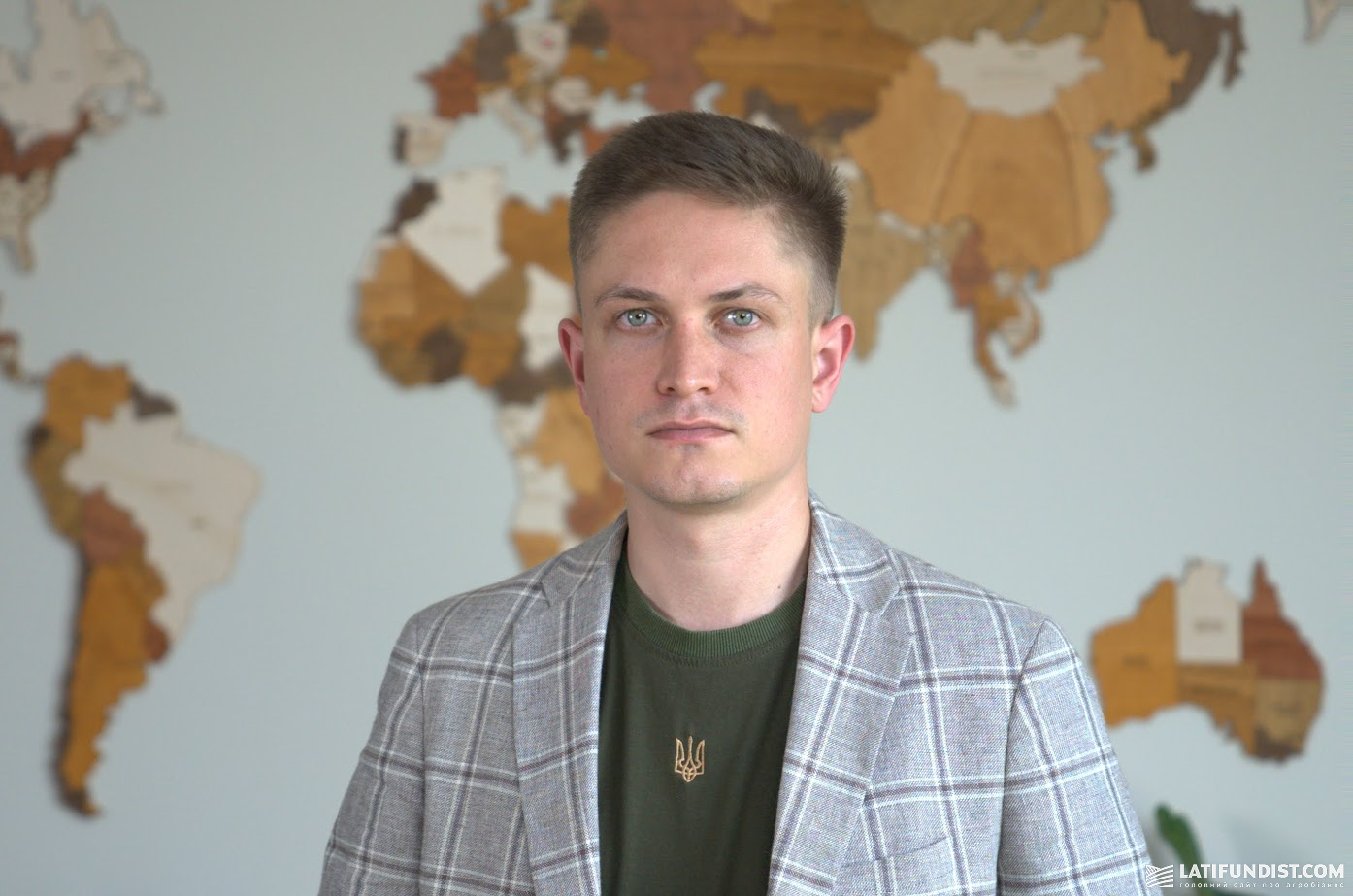
Latifundist.com: While preparing for the conversation, I reviewed russian sources. On some platforms, it is mentioned that you allegedly had a joint venture with the dealer “Bats.” At the same time, there is no such information on the dealer’s own website. They say that first the dealer sold your Atlant trailers, and then the same equipment appeared with the abbreviation GT (Grain Trailer) and that it was a product of your joint activity. Please explain what your cooperation actually looked like.
Dmytro Kobzarenko: With the company “Bats” and other russian dealers, we never had a joint venture or partnership in the legal sense of the word. We did not receive royalties from their activities, did not participate in management—it was purely direct business relations: supplier–dealer. Moreover, the agreement did not prohibit selling competitors’ products, which he actually took advantage of, and already in 2021, at an exhibition, he presented his own grain bagging machine. This is how he gradually began to copy our ideas, design elements, and launch his own production.
By the way, even the website kobzarenko.ru never belonged to us. It was the dealer’s resource. In 2022, we began the process of registering a trademark, and it is still ongoing. Only after completing this procedure will we be able to legally challenge the use of that domain.
Latifundist.com: Many russian and belarusian agricultural machinery manufacturers actively copied your models. I once came across the YouTube channel of a russian trailer manufacturer. And in the comments, someone wrote: “But this is Kobzarenko, what are you trying to sell us here?”
Dmytro Kobzarenko: Yes, indeed. Our equipment has a recognizable style, and many have tried to copy it. Just Google: Koblik, “Tonar,” and of course, “Bats”—their machinery is similar to ours down to the bolt. They copy because they want their products to be bought the way ours used to be.
As soon as we left that market, local products very quickly replaced us. My father already in 2019 predicted that the russian dealer would gradually replace our equipment with his own. And that is exactly what happened. After the start of the full-scale invasion, within half a year, the same dealer presented a fully localized unit of equipment.
Why a criminal case was opened against the company
Latifundist.com: Dmytro, obviously, you saw the investigation on the Siy website. Many market players probably saw it too. It claimed that your company, through the Polish enterprise, supplied components to russia through a scheme of interrupted transit. From a journalistic point of view, the material looked rather one-sided—you were not even asked for a comment. But on the other hand, the facts are not fabricated—there are references to court rulings, which really exist in the register and are easy to verify. Please explain, did the plant actually supply components, and where did this story come from?
Dmytro Kobzarenko: After February 24, 2022, we did not send anything to russia—neither directly nor indirectly. Neither through the Polish company, nor by any other channels.
Yes, indeed, there is an open criminal case, which is being handled by lawyers. The problem, in my opinion, is that the investigation incorrectly interpreted financial operations after February 24.
On February 16 and 21, there were shipments of equipment, 4 trucks in total. Dealer terms with deferred payment. The beginning of the big war. I had outstanding contracts with ZET worth €370,000, about 13 million UAH. The government banned settlements, and there were no explanations on how to repay debts on fulfilled supply contracts.
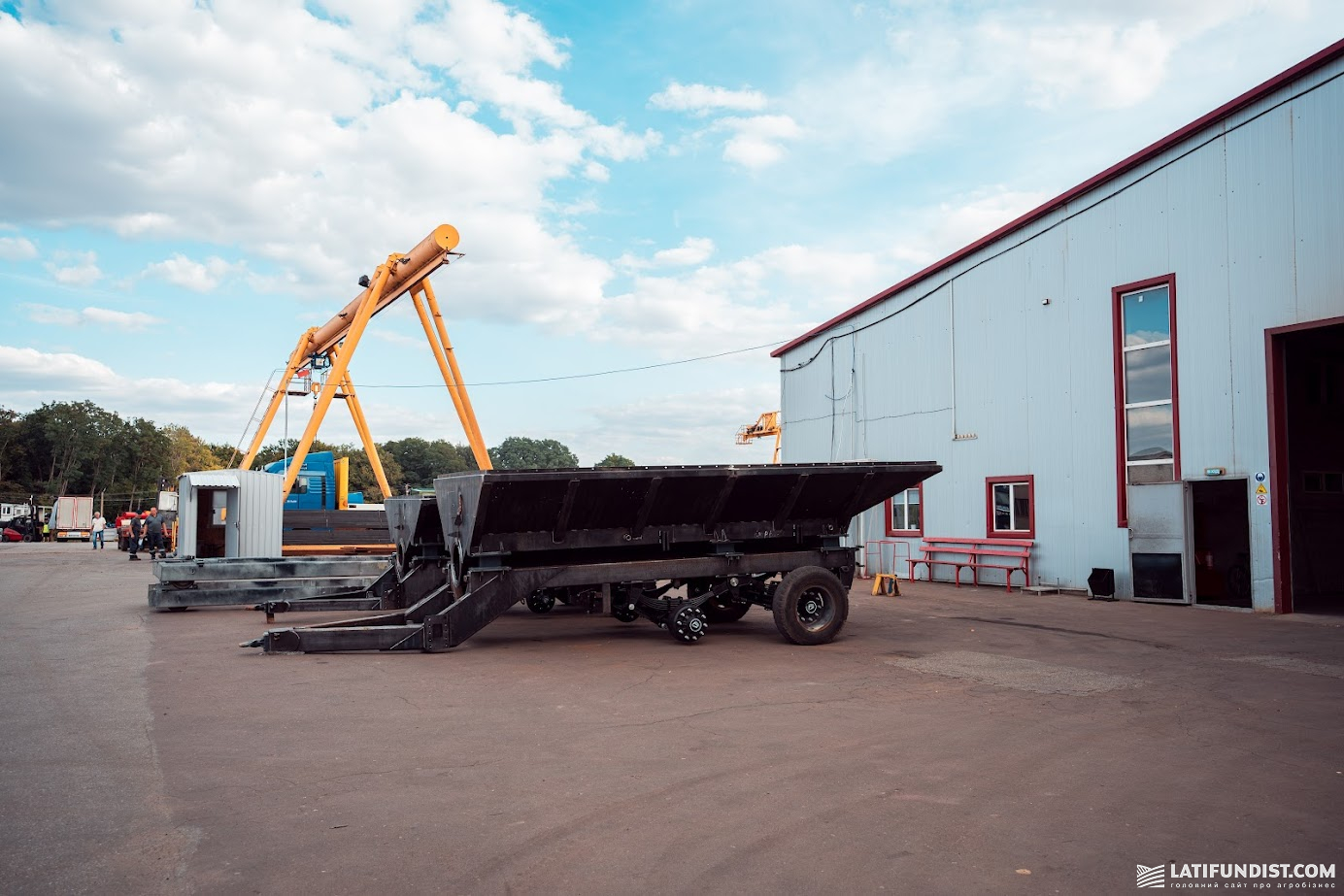
What to do? We began consulting lawyers and banks, and on their recommendation, a tripartite contract of debt transfer was signed. After the debt was repaid and went through currency control, taxes and all fees were paid.
The article is indeed one-sided: there are plenty of open lawsuits against the Siy website itself, but who checks sources nowadays? That’s a rhetorical question. The article is promoted as advertising on various trash sites on a paid and ongoing basis, which gives us a clear understanding of the customer who is conducting unfair competition and black PR. They cannot surpass us in quality, so they resort to mudslinging and blocking the work of a city-forming enterprise in Sumy region. My position is simple and clear: we do not work with russia, we will prove our case in court, and time will put everything in its place.
Latifundist.com: Why did you not communicate this story publicly? After all, it seems to me that the market learned about it anyway. You must have been asked questions. Maybe some clients even refused to cooperate?
Dmytro Kobzarenko: There were precedents. Every large company has its own compliance, security service, and auditors, especially if these are companies reporting to investors. Sometimes a letter of explanation was enough, sometimes I personally explained the situation, what was happening, and at what stage the investigation was. And after such conversations, sales resumed.
And why did we not come out publicly with a comment? These are negative things one does not want to talk about. The country already has enough problems—war, losses. And this is an internal issue that we tried to resolve legally. Like with an illness: when something hurts, you do not always tell even your relatives, you just go and treat it. These are not the things one boasts about. So here too—we know the truth is on our side and we will defend it.
On competition with European agricultural machinery manufacturers
Latifundist.com: Losing the russian market was significant for you. Which markets helped compensate for this?
Dmytro Kobzarenko: In 2021, we sold equipment to russia worth about €8 million—that was almost half our exports. The company’s total turnover that year was €61 million. And already in 2022, the total turnover dropped to €56 million, and in 2023 to €48 million. Finding such a large export market is not easy.
In 2022 and 2023, contracts with FAO and USAID helped offset the export decline. Special thanks go to Ukrainian farmers, who did not stop investing in their machinery fleets, which in fact saved the plant from halting for several months. 2023 and 2024 also turned out to be years of European market stagnation. At the AgroShow exhibition in Bednary, Poland, a manager from a competing company said: “We’ll drink beer at each other’s stands, don’t expect clients.” So the balance shifted from exports to the growth of domestic demand in Ukraine.
Latifundist.com: Where do you supply the most now?
Dmytro Kobzarenko: In total, we already work with 32 export countries. We even count shipments of 2–3 units as exports—for example, we recently sent bale carriers to Uruguay. If we talk about the top 3 markets where we are really pushing, it is Poland, Romania, and Germany. There is indeed the greatest potential, and the products are better adapted to the needs of these markets. Because when you start working with, say, Poland or the Czech Republic, the product requirements are completely different. For example, in the Czech Republic, for a tipper trailer, they often request a steering axle, while in Poland, this is almost never asked. So the process of adapting the product to the market is also lengthy.
Latifundist.com: Which products are you most recognized for there?
Dmytro Kobzarenko: Honestly, in Europe, we are weakly represented in the tipper trailer segment. We did not bet on them because the market is filled with local manufacturers. In Poland, there are about 4–8, and in Germany, even more. Moreover, the technology of producing such trailers is simple. They are not difficult to make. But in grain carts, I believe we hold leading positions. Even in Germany, we already compete with local manufacturers. For example, Hawe produces only 200 trailers a year, while in 2021, we made 700 grain carts. And that was only at our Ukrainian plants.
So we are well recognized for grain carts, walking-floor trailers, as well as unique units—railcar unloaders and loaders.
Latifundist.com: How do you manage to compete with European manufacturers, especially considering that in Europe, as in Ukraine, there is now a “buy local” trend? The first thought is price: maybe your product is simply cheaper?
Dmytro Kobzarenko: That is what they expect from us. If you are a Ukrainian brand, the European client automatically assumes the brand should be cheaper. Yes, thanks to production scale and process optimization, we can offer an attractive price. But we are not the cheapest brand. In many niches, we are at the price level of Polish manufacturers, because we use quality components—we do not play with Chinese substitutes.
Latifundist.com: Apart from Uruguay, to which other exotic countries have you shipped your equipment?
Dmytro Kobzarenko: To Australia. But these are single shipments—once a year, roughly one container. To establish regular deliveries, the product must be adapted to Australian requirements. And we plan to do this.
Latifundist.com: How exactly do you adapt it?
Dmytro Kobzarenko: In Australia, the farms are very large. On 11,000 hectares, only three people work. Often, the owner is also the tractor driver and mechanic. And so we sent them a grain unloader that required two people to operate: one in the tractor, the other on the machine. And the Australians asked to reduce the required number of people to operate this machine.
Australians need autonomy in equipment. A six-meter auger with a 250 mm diameter is quite simple equipment. But in Australia, it has a 40-horsepower engine installed so that the unit is as autonomous as possible.
Latifundist.com: What is your current ratio of exports to domestic sales?
Dmytro Kobzarenko: Exports are 30% and Ukraine is 70%. In 2021, Ukraine accounted for 60%, and exports 40%.
What equipment is in demand in Ukraine
Latifundist.com: Speaking about Ukraine, at the beginning of the full-scale invasion, some niches experienced a new lease of life. For example, everyone rushed to buy silage bags and grain sleeves. Is demand declining now?
Dmytro Kobzarenko: In 2022, there was a huge demand for railcar unloaders. Many were sent for export, and many were sold inside the country. We even switched a shop to two shifts and opened a separate production line for this product. Then demand dropped, and when border blockages began, it rose again. It is a very unstable segment.
Demand also dropped for aluminium grain trailers, which we presented in 2020–2021. But in grain carts, I would say the market is more stable. There may be fluctuations within 100 units, but this is offset by other products.
There was a spike in grain bagging equipment thanks to support programs from USAID and FAO. In one year, we sold 315 units, though we had planned for 150. But later, as often happens with subsidies in Europe, the market immediately slumped. In the following years, demand was 50 or even 20 units. By the way, at the peak, two other manufacturers entered the niche, but they missed out—the market was already saturated.
Latifundist.com: And what about silage bags?
Dmytro Kobzarenko: Also declining. But demand for container transport is increasing. And two years ago, we released TOR-20—a tipper for 20-foot containers. So we try to anticipate changes and adapt in advance, so as not to “miss” a new wave of demand.
Latifundist.com: Recently, I was at the “New Zerniatko” forum in Ternopil region and saw your novelty there—machinery for transporting sugar beets. Is this by any chance a response to the “beet boom” that occurred in the first years of the full-scale war? Though now, it seems, there is already a decline.
Dmytro Kobzarenko: This market is quite cyclical. It seems they write that the life cycle of the sugar market is seven years. As for the new equipment, this was a request from clients. At Agritechnica 2023, Yevhen Stepanovych Dudka literally described point by point what he needed: volume, chassis type—only not tracks, only wheels, etc. We already had some groundwork, but had to finish it. At Agritechnica 2025, we plan to bring our Titan.
Latifundist.com: Interestingly, the push came not from sugar giants—not Astarta, not UKPROMINVEST-AGRO—but precisely from Yevhen Dudka.
Dmytro Kobzarenko: Astarta also approached us, I won’t hide it. But it was Yevhen Stepanovych who became the first serious “bell.” And he knows how to persuade. So we met him halfway.
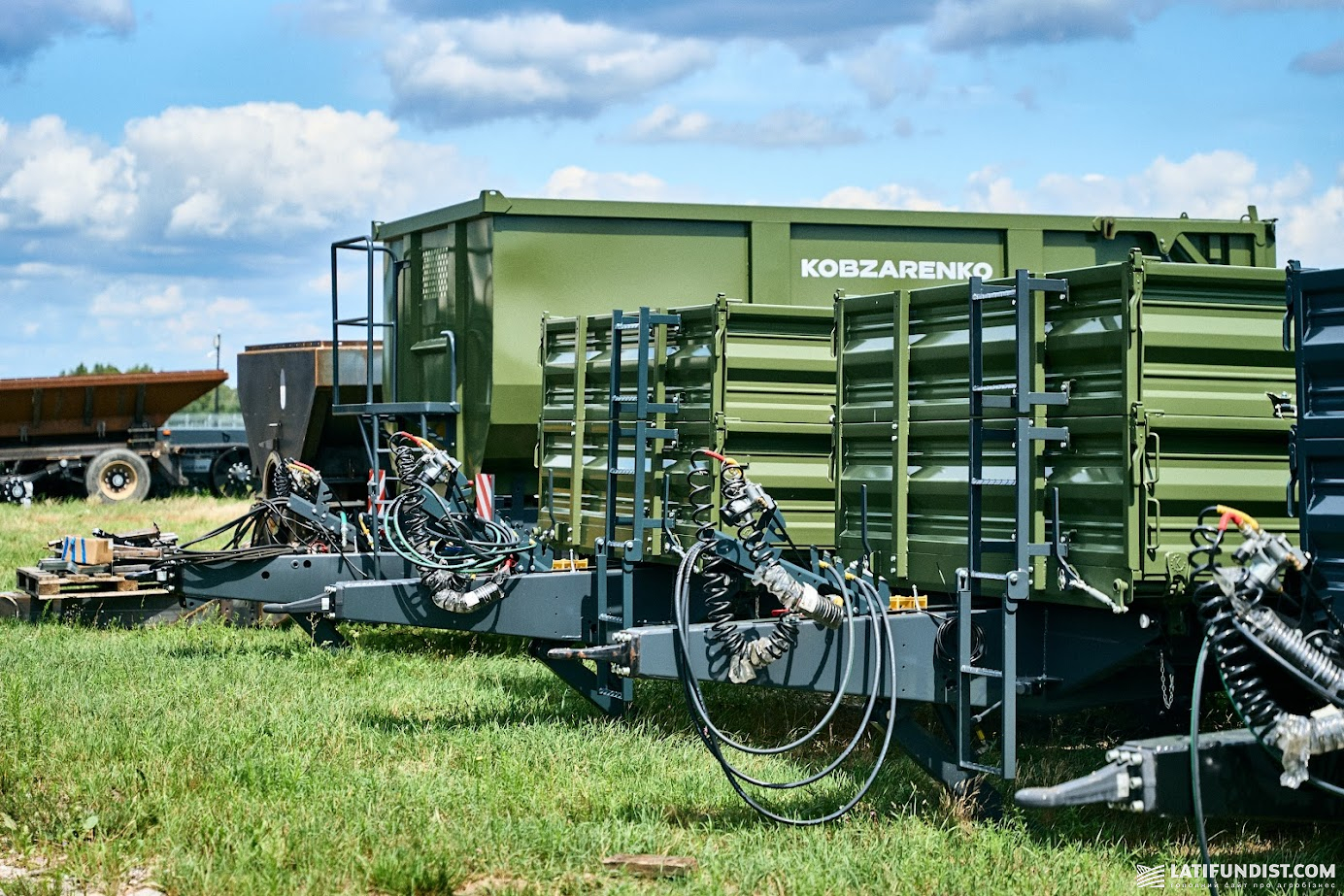
Latifundist.com: Have you considered entering non-agricultural niches? For example, Poles from Ursus—after the company was bought by a Ukrainian—they started producing drones.
Dmytro Kobzarenko: If we talk about a niche outside the agro sector, that is already the level of investors. Frankly, I am not there yet. For now, I am at the level of a machine builder in the agro sector. My life credo is: “If you know how to do something, do it the best.” Recently, I read the book Hidden Champions about small family businesses with turnovers of €3–5 billion. For example, TRUMPF or a company that produces certified wheels for hospital trolleys and supplies them worldwide.
For me, there were two key thoughts. First, a business rests on a strong, high-quality product that brings innovation to the market. Second—globalization. When Poland slumps, you sell to Romania or Africa. When Africa slumps, Canada or Europe shoots up. The main thing is to have a product that adapts to market changes. Therefore, I am not dispersing myself yet. I am trying to focus on the product we know how to make and promote it to even more global markets.
Books that inspire and plans for the next three years
Latifundist.com: You are still often compared to your father. If you abstract and look from the outside, are you two different managers?
Dmytro Kobzarenko: Probably yes. But no one will surpass my father. He was a locomotive that pulled everyone along. He had an inner fire; everything drove him. I have a different psychological make-up—I am more reserved, technical, not so public. People often compare, remember—and that is good. Because as long as we remember, he lives with us.
I have a different management style—team-based. That is more comfortable for me, because a business should not destroy the person who leads it. I get more satisfaction when the result is not so much my personal activity, but the ideas and implementation of my team. For example, in 2023, sales head Yevhen Khrystenko researched the market and came up with a proposal to make a sand spreader, because it would be popular in the municipal sector. I said, “Let’s do it.” And we really hit that market well. Now we have many orders for these spreaders.
Therefore, of course, I must give some vector, so the team understands where we are moving, how we are developing, and what our priorities are. But at the same time, I do not allow the team to disconnect from me. It is still a family company. And I am not ashamed of the “Kobzarenko” name on trailers. I myself do everything so that there is nothing to be ashamed of.
Latifundist.com: In 2023, in one interview, you said that when you focus on one plant—you immediately feel a slump in the other. Have you since learned to delegate, to separate the work?
Dmytro Kobzarenko: It is hard to evaluate yourself from outside, but judging by the team’s effectiveness, I think yes. I really appointed managers to appropriate positions. Each department now has its head, each plant a director, who deals with operational issues that I previously could put “on the shelf,” resulting in delays, people not getting answers. Now I get management satisfaction when I see results, and I remain an observer.
You know, delegation does not come from an easy life. Often, people think if you delegate something, you have free time. Actually no. You begin to delegate when you can no longer handle everything yourself. Because there are only 24 hours in a day. And when you combine management and operations, you need all 40 hours a day. Still not enough. So thanks to delegation, I got time to engage in strategic matters—market development, structuring, analysis. And this does not mean I stepped away from business. I can always call the service department and ask to show me the warranty claims statistics for a month. And they must give me an answer. That is normal.
For four years, I did not separate operations from management. For me, it was all just “one plant.” Because that’s how my father worked, and I thought I had to do the same. But now we have reached the level of a large structured business.
Latifundist.com: A classic HR question: where do you see yourself in five years? It seems you had a strategic session—you outlined plans for the coming years. What goals do you set for yourself for a five-year perspective? Could you briefly describe them by key directions?
Dmytro Kobzarenko: First—it is a quantitative indicator. And globalization. By 2028, we want to expand to 4,000 units per year across all plants combined.
Quality improvement is a point that is not even discussed. It is automatically embedded in any process. Everyone on the team understands: product quality is the highest value the client expects.
The second point is market conquest. Maintaining a leadership position in the Ukrainian market and capturing market share in Poland and Europe.
The third point is the development of a high-tech product. Ordinary dump trailers will not keep the company alive for long, so it is necessary to develop precision farming, reduce equipment’s dependence on high-skilled operators, and, of course, reduce the number of people required for servicing. A dump trailer does not need AI, but our sprayer that can analyze the chemical composition of pumped water and, based on AI, provide the operator with a recommended amount of fertilizers for mixing—that is the future we are stepping into.
Kostiantyn Tkachenko, Natalia Rodak, Latifundist.com

